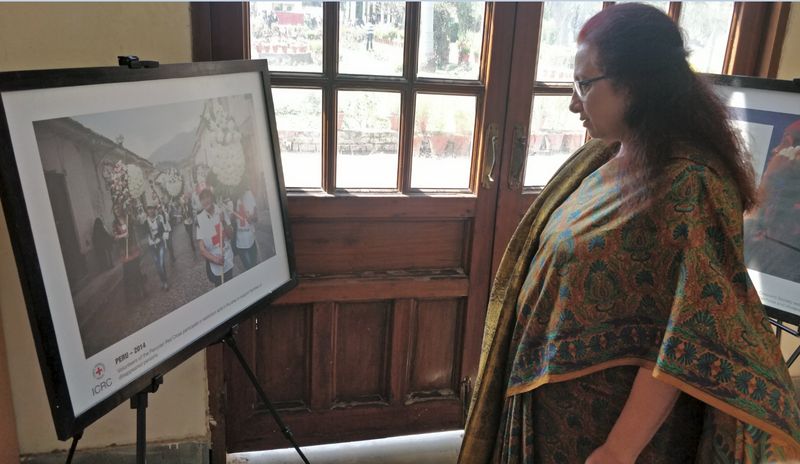On 5 March 2019, at the invitation of the Indraprastha (IP) College for Women, University of Delhi, the International Committee of the Red Cross (ICRC) conducted a session on ICRC’s role and mandate, with special emphasis on Geneva Conventions (GC) and how the GCs relate to media professionals working in emergencies. The event kicked off the two-day annual festival of the Mass Media and Mass Communication Department, ‘Lights, Camera, Action’.
The ICRC addressed a group of over a hundred eager students on the occasion. The session concluded with a quiz on the most important aspects of the Red Cross Red Crescent (RCRC) Movement which the students responded to enthusiastically. The purpose of this session was to kickstart a process of student interactions which will stimulate young minds to think about the complexities of reporting from emergencies and how media professionals and humanitarian organisations can interact so that stories worth telling are told.
As IP College for Women is the oldest women’s college in the University of Delhi, addressing women students from the college a few days before international women’s day (IWD) took on special significance. This year, IWD is being marked by the RCRC Movement under the theme, “How Gender balance can strengthen our humanitarian impact”. Hence, having more women as media professionals will result in a diversity of narratives and a variety of opinions on how emergencies play out and the roles of those involved.
A collection of photographs was also on display for the duration of the festival. These photographs illustrate and document the activities of the ICRC and of the RCRC Movement, across the world. The collection focusses on the aftermath of emergencies, both natural and man-made and the incredible journeys of people. As cities slowly come back to life, people show unbelievable resilience in the face of grief and destruction. The photographs have been sourced from the ICRC archives, housed in Geneva and have continually expanded over 150 years. Today, they represent a significant heritage in the field of humanitarian assistance.



